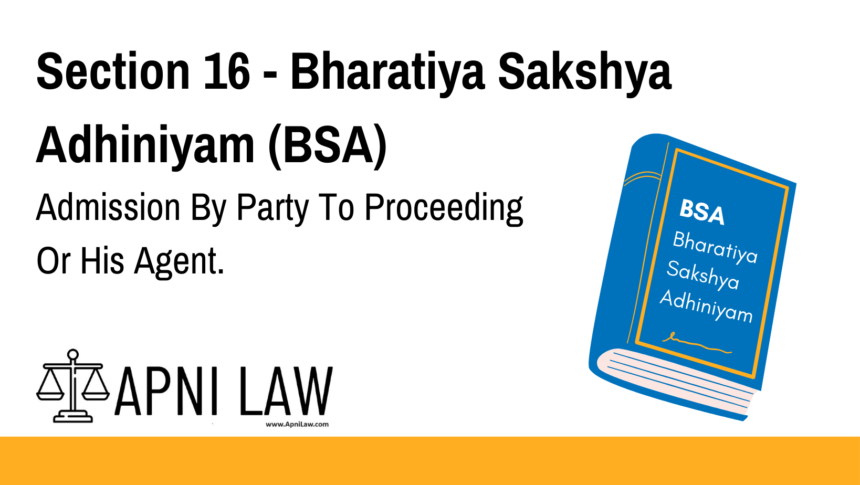Code
(1) Statements made by a party to the proceeding, or by an agent to any such
party, whom the Court regards, under the circumstances of the case, as expressly or impliedly
authorised by him to make them, are admissions.
(2) Statements made by—
(i) parties to suits suing or sued in a representative character, are not admissions,
unless they were made while the party making them held that character; or
(ii) (a) persons who have any proprietary or pecuniary interest in the subject
matter of the proceeding, and who make the statement in their character of persons so
interested; or
(b) persons from whom the parties to the suit have derived their interest in the
subject matter of the suit,
are admissions, if they are made during the continuance of the interest of the persons
making the statements.
Explanation
This section outlines whose statements can be treated as admissions in a legal proceeding.
Statements by the following are considered admissible as admissions:
- Parties to the suit or proceeding.
- Their agents, provided the court is satisfied that the agent was authorized (expressly or impliedly) to speak on their behalf.
- Persons with a legal, proprietary, or financial interest in the matter at hand, but only if the interest existed at the time of the statement.
Also, statements made in a representative capacity are valid only if made while actually holding that role.
Illustration
Example 1: A person being sued for breach of contract makes a statement admitting the breach in an email. That email is admissible as an admission.
Example 2: A property manager (agent) makes a statement about rent arrears on behalf of the landlord. If the court finds that the manager was authorized to speak, the statement counts as an admission.
Example 3: A trustee (suing in a representative character) makes a statement about the trust property after his term ends. That statement is not an admission unless it was made during his tenure as trustee.
Key Concepts
- “Agent” includes legal representatives or anyone acting on behalf of a party, if authorized.
- Admissions must be made while the relationship (proprietary, representative, or agency) is active.
- Timing and authority are critical: the statement must be made during the existence of interest or capacity








